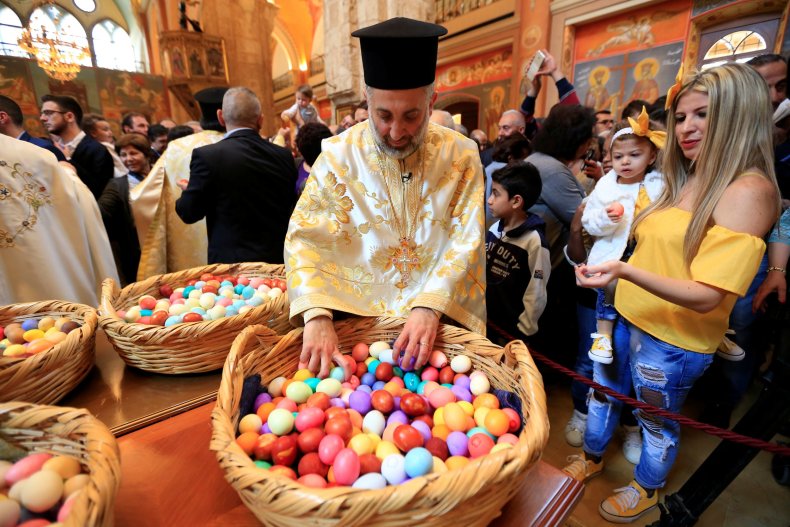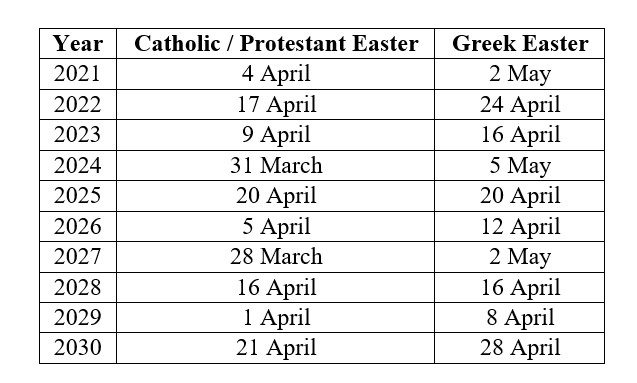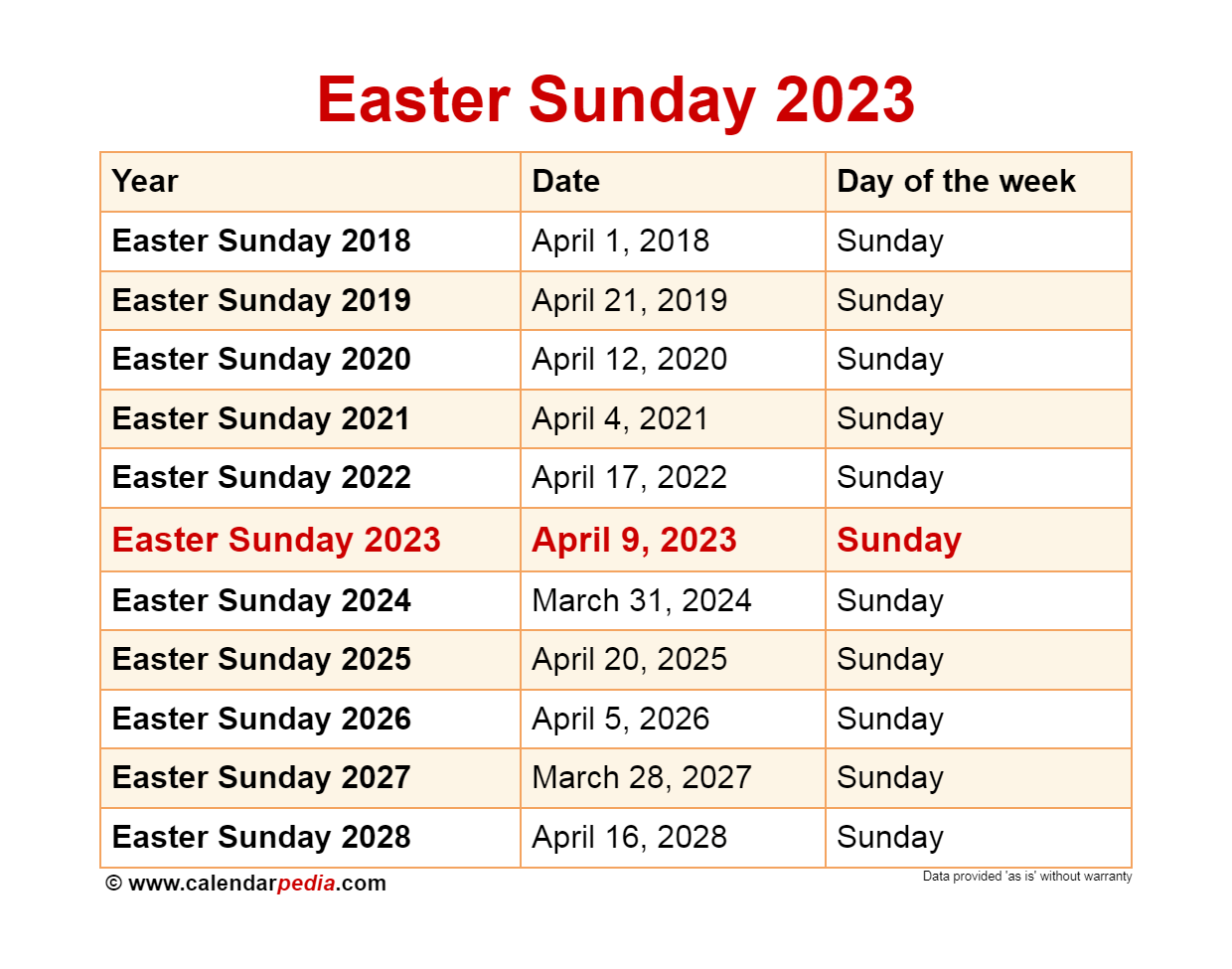Greek Orthodox Easter is one of the most important holidays in Greece, celebrated with great enthusiasm and passion. In 2023, the holiday is set to fall on April 16th, and Greeks are already eagerly anticipating the festive celebrations.
Pain Points of Greek Orthodox Easter 2023 in Greece
One of the most challenging aspects of celebrating Greek Orthodox Easter in Greece may be the large crowds and busy tourist season. Many people will be traveling to Greece to experience the holiday, and popular tourist destinations like Athens and Thessaloniki can become crowded and expensive during this time. Additionally, for those not familiar with the Greek Orthodox faith or customs, it may be difficult to fully appreciate and understand the holiday’s significance.
What is Greek Orthodox Easter?
Greek Orthodox Easter is a Christian holiday that celebrates the resurrection of Jesus Christ. It is known as Pascha (or Πάσχα) in Greek and is traditionally a time of spiritual reflection, community, and celebration. The holiday is marked by various customs and traditions, including church services, special meals, and family gatherings.
Main Points of Greek Orthodox Easter 2023 in Greece
In 2023, Greek Orthodox Easter will take place on April 16th. This important holiday commemorates the resurrection of Jesus Christ and is celebrated with various traditions and customs, including church services, family gatherings, and special meals. While the busy tourist season and crowded destinations can make the holiday challenging to navigate, it is a unique and unforgettable experience for all who celebrate.
Celebrating Greek Orthodox Easter in Greece
One of my personal experiences celebrating Greek Orthodox Easter in Greece was visiting the island of Paros. The island was alive with festive energy as locals and visitors alike gathered in the streets to celebrate. The midnight church service, known as Anastasi, was a particularly moving experience, as the local church bells rang out across the island, and the crowds lit candles and sang hymns. The next day, we enjoyed a traditional Easter meal with friends: lamb roasted over an open fire, fresh bread, and a variety of savory and sweet dishes. It was a magical experience that I will never forget.
Traditions and Customs of Greek Orthodox Easter in Greece
One of the most iconic traditions of Greek Orthodox Easter is the dyeing of red eggs, which symbolize the blood of Christ. The eggs are often used in games and competitions, with participants trying to crack each other’s eggs to see whose will remain uncracked. Other traditions include the lighting of candles during church services, the baking of traditional Easter bread known as tsoureki, and the roasting of lamb on a spit. Greeks also often gather with friends and family to enjoy a festive meal after the midnight Anastasi service.
The Significance of Holy Week
Holy Week is an important part of the Easter holiday, commemorating the final week of Jesus Christ’s life before his crucifixion and resurrection. Holy Week begins with Palm Sunday, where worshippers carry palm branches to signify Christ’s entry into Jerusalem. It culminates in Great Saturday, where the Anastasi service is held at midnight, signifying Christ’s resurrection from the dead.
The Importance of Food in Greek Orthodox Easter Celebrations
Food is an integral part of the Greek Orthodox Easter celebration, and many traditional dishes are enjoyed during the holiday. Along with the roasted lamb, Easter bread, and red dyed eggs, other popular dishes include lamb offal soup, magiritsa, and a variety of savory and sweet pies. Greeks often gather with family and friends for an Easter feast, where they share food, drink, and stories.
Question and Answer
Q: What are some other traditional Orthodox Easter foods?
A: Other traditional foods include spanakopita (spinach pie), tiropita (cheese pie), koulourakia (butter cookies), and halva (a sweet sesame dessert).
Q: How long do Greek Orthodox Easter celebrations typically last?
A: Greek Orthodox Easter celebrations can last for up to a week, with events and gatherings often occurring throughout the week leading up to Easter Sunday.
Q: What is the significance of the Easter candle in Greek Orthodox tradition?
A: The Easter candle, or lambada, symbolizes the light of Christ, and is used during church services and in other Easter celebrations as a reminder of the resurrection.
Q: What should visitors to Greece know about Easter traditions and customs?
A: Visitors to Greece should be aware that Easter is a time of great religious significance and observance, and that many businesses, restaurants, and attractions may be closed during the holiday. In addition, visitors should be respectful of Greek Orthodox customs and traditions, including avoiding loud noises and public intoxication during the somber church services.
Conclusion of Greek Orthodox Easter 2023 in Greece
Greek Orthodox Easter in Greece is a unique and unforgettable celebration that brings together friends, family, and communities to celebrate the resurrection of Jesus Christ. While it may present some challenges, such as crowded tourist destinations and unfamiliar customs, it is an experience that is not to be missed. Whether you are looking to deepen your spiritual connection, enjoy traditional Greek food and hospitality, or simply learn more about one of the world’s oldest and most fascinating cultures, Greek Orthodox Easter in Greece is an event that truly has something for everyone.
Gallery
Why Is Greek Orthodox Easter Different – Orthodoxholiday

Photo Credit by: bing.com /
Why Greek Orthodox Easter Is On A Different Day – Viva Your Personal Chef

Photo Credit by: bing.com /
When Is Greek Easter 2018? Orthodox Holiday Celebrates The Resurrection

Photo Credit by: bing.com / easter orthodox greek greece festivals jesus when celebrate holiday resurrection christian church traditions celebrates cultural events service april priests distribute
Orthodox Easter 2023 Calendar Date – Get Calendar 2023 Update

Photo Credit by: bing.com /
Greek Easter 2023 Calendar Date – Get Calendar 2023 Update

Photo Credit by: bing.com /